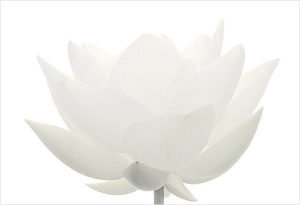
The Six Niyamas:
Shaucha (purity). Cleanliness of the body and purity of the mind. External Cleanliness of the body is a means of controlling the mind. It includes daily bathing, wearing clean clothes, living in a clean house; on the subtle level, it is purity of action or selfless service. It includes the system of shat karma (6 purificatory techniques). In the subtle level, it is the elimination of negative qualities and thoughts from the mind. By observing cleanliness one becomes less attached to one’s own body. When purity is perfected one gains control of the senses and becomes cheerful, one-pointed, and fit for self-realization.
Santosha (contentment): Contentment is not passive, it is a virtue to be actively cultivated in order to free the mind from the effects of pleasure and pain. When contentment is perfected, one becomes desireless and attains unexcelled happiness.
Tapas (austerity): Literally “to burn”. Tapas implies the burning of all desires by means of discipline, purification, and penance.
Pranayama (breath control) is the highest austerity, as it requires great restraint of the normal, life-giving breath.
Svadhyaya (scriptural study): The study of scriptures, self-inquiry, satsang, and japa (repetition) of Om, with the aim of attaining liberation. Study of the scriptures pertains especially to the Vedas: it also includes the study of the lives and teachings of saints. Self-inquiry is done by reflecting deeply on the question, “Who am I?”. Satsang is association with spiritually oriented people and places.
Ishvarapranidhana (surrender to God): Recognition that the limited, ego-self is an illusion; “One who sees the Self in all beings and who has surrendered the ego of being the “doer” is the true practitioner of Ishvarapranidhana. Perfection of Ishvarapranidana brings success in samaadhi (superconsciousness).
- Psychotherapy in the Virtual Space: How teletherapy has changed the way we give and get care - April 26, 2021
- (home video area – couples counseling) - November 23, 2011
- (home video area – mindfulness) - November 23, 2011


Leave a Reply